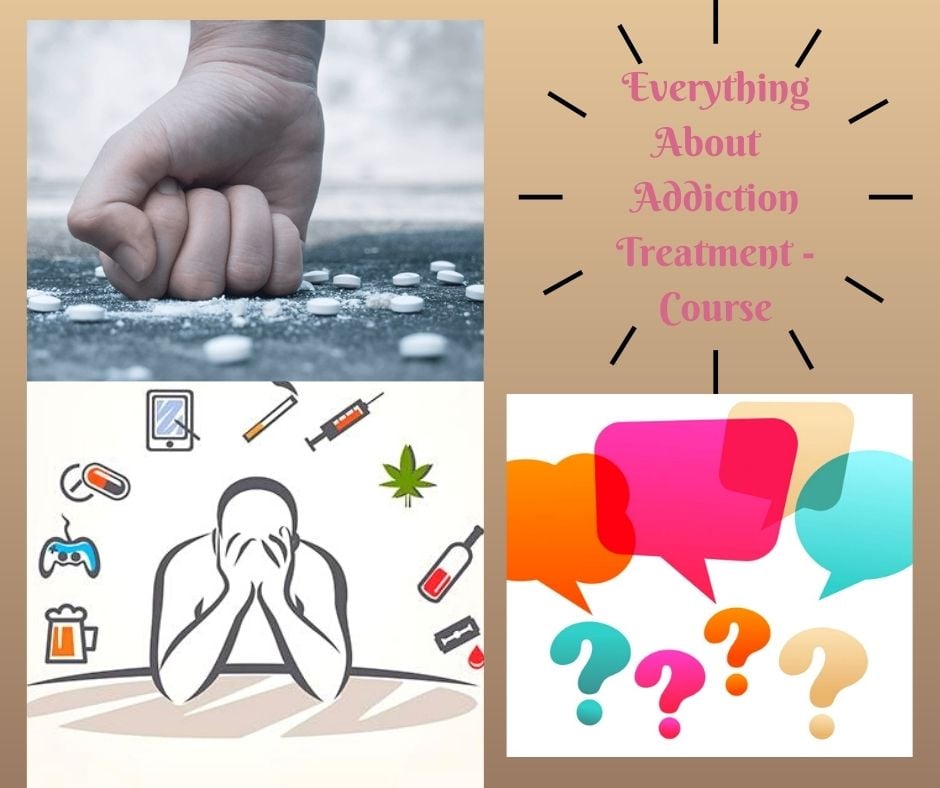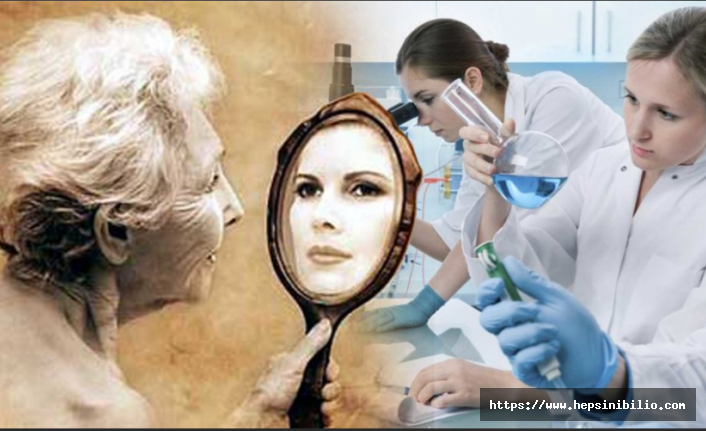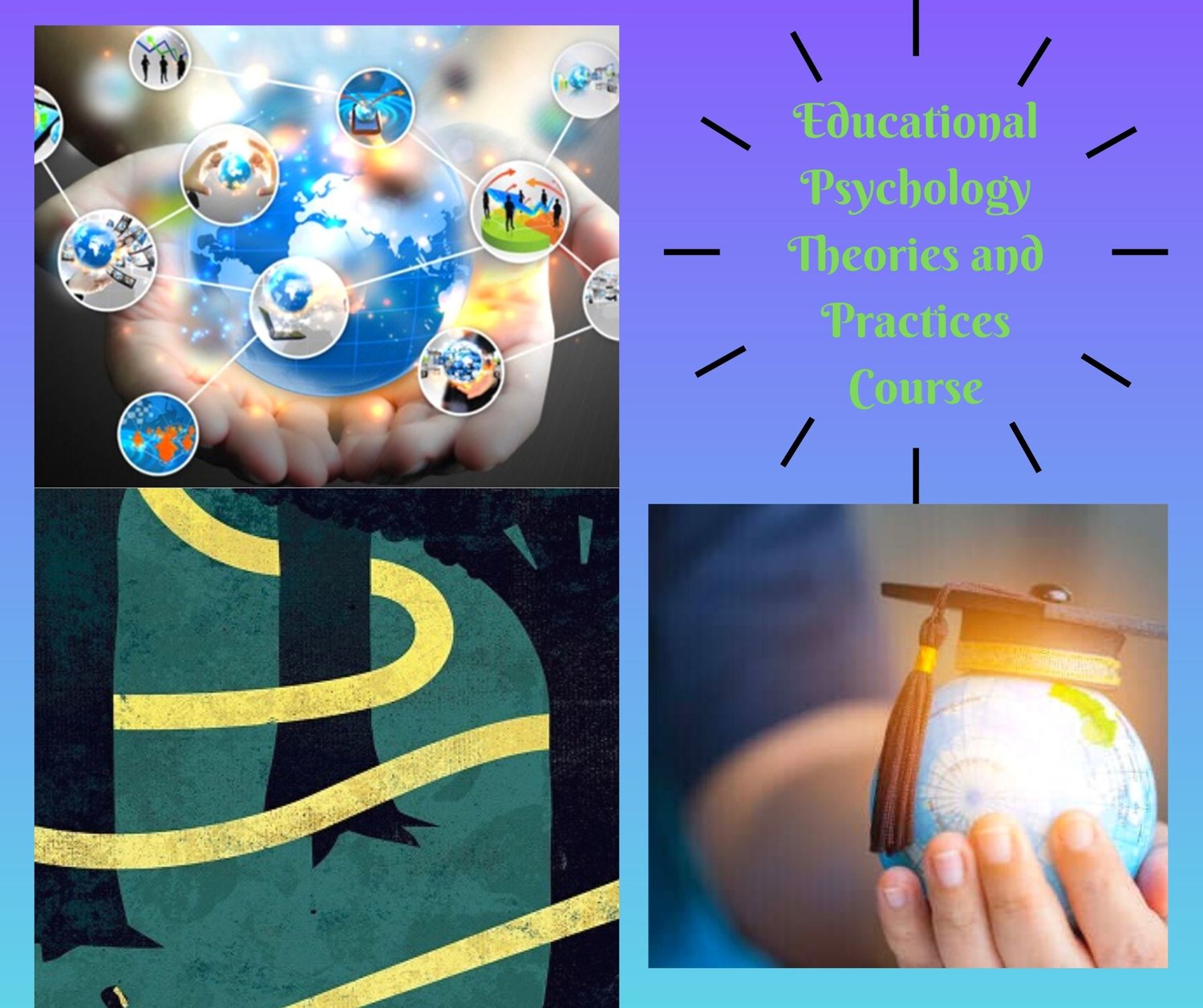
PsychoSocial Theories and Therapy Course
On Sale
€19.00
€19.00
Psychosocial stages of development were defined and developed by Erik Erikson. First of all, let's define this: What is psychosocial in the literal sense?
Psycho-Social: This definition, which consists of the combination of the words "psychology" and "social", refers to the life of a person, which is affected by environmental factors and divided into various stages spiritually.
Psychologist Erik Erikson, who works in the fields of developmental psychology and psychoanalysis, argues that people go through 8 different stages from birth to death. This theory, which is a very powerful approach, sheds light on many experts working in the field of psychology today.
Psychosocial Development Theory
It is important that parents and educators know this theory and its stages so that they can make sense of their children, their environment and their own behavior more easily! In this way, it is possible to identify the difference between normal and abnormal, conflicts and solutions more easily when following a person's personality development.
In order to better understand “What is Psychosocial Development Theory?” And “What Are the Stages of Psychosocial Development?” Let's examine the titles one by one.
Examine MentalUP to support your children to become individuals who can express themselves comfortably and use their mental skills effectively in society. Open Page.
WHAT IS THE THEORY OF PSYCHOSOCIAL DEVELOPMENT?
Erik Erikson argues that in order for a person to develop in a healthy mood, he must complete various goals in each period he divides into eight. These goals are conflicts and results.
In other words, he says that we will encounter different conflicts in every stage of our life, which is divided into 8 stages, and that we must successfully overcome these conflicts. The more we can cope with conflicts, the more successful our personality development will be. However, to what extent we can deal with the conflicts of an era; He says that we will be prepared for the next period as well.
He states that if we cannot overcome the conflicts experienced, we will face different difficulties in the next period and we will have difficulty in going back and making up for the damage left by our conflicts in the past. However, Erikson says that with a healthy approach, the personality disorders of the individual can be compensated in the later periods.
There are 2 very important items in this regard:
The insurmountable conflicts of any period must be overcome sooner or later. Unsurpassed conflicts threaten a person's psychology for life.
Childhood and adolescence periods are very important in psychosocial developmental stages (which we will talk about in a moment).
Erik Erikson
STAGES OF PSYCHOSOCIAL DEVELOPMENT
1. Developmental Stage: Basic Confidence vs. Distrust (0-1.5 Years)
The first developmental stage covers the baby's learning by mouth (taste). That's why the name of this phase has been given the ORAL PERIOD. The primary goal of newborn babies is to seek and suck the breast orally. In the oral period, parents should feed their children periodically and regularly. The baby, whose needs are met with confidence, becomes more hopeful and positive in later ages.
Babies who start to develop other motor skills after about 6 months learn to touch, hold and bite. This means new experiences for them. When the baby learns that biting his own finger is a painful experience, he will not bite his finger again. In the same way, when the mother bites her breast, she experiences that the breast is being abducted from her at that moment, and she tends to reduce this behavior.
The baby, who reacts to the effects of his environment (eg biting), lays the first foundations about the personality phenomenon; feels its own presence.
Expectations of the baby in this period are: attention, love, eating and drinking, and elimination of uncomfortable situations (eg diaper that hurts his bottom). If the parents meet these expectations of the baby in a healthy way and without interruption, the baby will develop a sense of trust. The developing sense of trust has a level and importance that can affect the child's perspective on life in later ages. The baby, who feels insecure during this period, may look pessimistic towards life in the future.
Again, in the following process, the baby can cope with this when he cannot see his parents. In other words, he does not think that he has been abandoned because his parents are not with him at that moment. This coping is considered the child's first social success.
In the first stage, 0-1.5 years of age, the child's encounter with negativities, not being able to meet his needs and experiencing problems based on trust can lead to many different problems in later ages. These are observed as pessimism, introversion and alcohol-substance addiction. It is not claimed that this will happen, but it is a situation that strengthens the possibilities.
2. Developmental Stage: Shame and Doubt About Independence (1-3 Years)
It is the period when the child learns to control the bowel (TDK: Intestine) and muscle. In this way, he can hold his urine and urinate whenever he wants. That's why this phase is called the ANAL PERIOD. The child's ability to maintain self-control over a compulsive need no longer agrees with him. shows it can be done. During this period, stubbornness may also arise. They may fail the itinerary curriculum), may be hyperactive, may not have discovered their intelligence potential yet. All of these are issues that can be intervened with early diagnosis. Therefore, families should evaluate the situations they see as negative with expert interpretation instead of criticizing and blaming them.
MentalUP is a TÜBİTAK supported application prepared with gamification elements that attract children's attention and motivate them constantly by gamifying brain exercises.
Prepared according to today's needs and wishes, MentalUP also aims to ensure that children make good use of the time they want to spend with their computer, phone, tablet. Mind games consist of daily 25-30 minutes of exercises. In this way, you do not have to exhibit an oppressive and restrictive attitude and you will provide your children with the right of controlled use.
As a result, you will support them both to have fun and to develop their mental skills. MentalUP also supports school success as it supports children's reasoning skills. Its effects have been proven and certified as a PEDAGOGICAL PRODUCT by the Mental Health Association. You can check it on the mind games page.
MentalUP Mind Games:
5. Developmental Stage: Identity Confusion vs. Identity Acquisition (12-19 Ages)
It is the stage that covers just before puberty and puberty. The age range of 12-19, in which a rapid emotional and physical change is experienced, is called the adolescence period.
In this period, individuals act with the goal of acquiring identity. The habits, outlook on life, beliefs and thoughts acquired until that day may change; questionable. In this period, contrary behaviors can also be seen, but over time, behaviors that are considered healthy and correct in accordance with the norms of society begin to settle.
Young people looking for identity may want to feel a sense of belonging by being included in certain groups. These groups may be groups with social responsibility purposes, or they may be completely harmful groupings. Young people can also choose this to look strong. For example, being a member of groups of a political view that target youth. Those who do not feed from the groups may try to resemble important (or famous) names.
Again, one of the distinctive features of this period is that young people care excessively about their physical appearance. While some admire themselves, others do not like themselves, and these feelings are generally experienced at extreme points.
Anxiety for the future, desire to stand on one's own feet, thoughts of leaving home and parents are seen towards the end of this stage.
It is an important stage for the individual to know himself and shape his future life. In order to complete this stage in a healthy way, young people must have passed the previous stages in good health. Otherwise, alcohol, nicotine and worse habits, criminal tendencies, artificial reputation studies and similar negative behaviors may be permanent. If you do a little research around you, most of the cigarette addicts are people who started at adolescence and probably can't quit even though they regret it now. The emotion that encourages him to smoke in adolescence may be the search for identity. If you want your children to be able to cope with such problems, you need to help them (be conscious) to come to the 5th developmental stage with a healthy mood.
It is very important to do toilet training correctly in the anal period, which is the second developmental stage. Toilet training that scares, threatens, and exerts excessive pressure on the child is never right. However, overprotective behaviors also prevent children from voluntarily controlling their own behavior. Such erroneous behaviors of parents can cause the child to become a shy and suspicious individual in the future.
The complexes we see in adults are often rooted in the problems they experience during the anal period. As an example, we can show people who look at people with skepticism, think that they are used or manipulated, and are perfectionist and prescriptive. According to Erik Erikson's psychosocial development theory, the problems experienced in the second stage (between 1-3 years) have an effect on the basis of such behaviors.
Another feature of this period is that the child is now able to use his own will in his choices. Or rather, this is what it should be. If you do not allow your child to construct his preferences and use his free will during this period, you will have a negative impact on his personality development. In advancing ages, situations such as embarrassment, self-evaluation of a bad individual, and seeing their physical and mental aspects badly may occur. All this leads to the formation of a prescriptive and strict personality.
So what happens in the opposite case? If the child can feel the sense of autonomy and control his own autonomy; If he can get positive support and motivation from the family in this regard, he can turn into an individual who trusts, respects and acts fairly in later ages.
3. Developmental Stage: Guilt vs. Entrepreneurship (3-5 Ages)
It is the stage where the child can express himself more easily and use his language and motor skills better. This phase is called the agency-oedipal phase. One of the most distinctive features of the period was the interest in sexual matters. During this period, children can touch their own genitals, touch their friends' genitals, and play sexual games. All of these are out of curiosity, but unconscious families may think that this is a moral disorder and go to the way of scolding and punishing the child directly.
During this period, children who are humiliated, beaten or punished because of their curiosity experience destruction. The bill for this occurs in later ages. The roots of sexual problems and suppression usually date back to 3-5 years of age.
3-5 years of age is the period when the child can structure his relations with his friends. They may have some aggressive urges due to age, but they can satisfy this desire with games or toys. That's what's healthy. Of course, the guidance of families in this regard is important. We recommend that you seek pedagogical support in cases where you cannot cope.
Parents, it is not a crime for children to fight; They should evaluate it as a strong impulse and prevent it by showing a positive approach. Disciplining a child with a tendency to violence with verbal or physical violence only increases the tendency to violence. In later periods, they may turn into individuals with high egos, who do not respect other people's views on life, force those around them to act in accordance with their own views.
If this period is overcome positively, strong foundations are laid for being a respectful and responsible individual.
If you notice, in stages, there is the emergence of a new behavior and the reaction of the environment (family) to this behavior. For example, there is sexual curiosity in the guilt stage versus entrepreneurship, which is the 3rd developmental stage, and there is punishment or positive direction in return. There is a tendency for violence, and in return there is punishment or positive direction. All these new behaviors and reactions to new behaviors are effective factors in the child's personality acquisition.
Let's continue the developmental stages with stage 4.
4. Developmental Stage: Feelings of Humiliation versus Productivity-Inferiority (5-11 Years)
It is the period covering pre-school education and primary school age. The 4th developmental stage, which is between 5-11 years of age, is called the latent period. It is the period in which social relations develop and production processes are added to learning processes. During this period, children tend to set role models.
They learn how to accomplish a task on their own, how to get help where needed, and how to help others. It is one of the periods when the feeling of achievement gives the most pleasure and is most needed. Children who pass this period successfully are at peace with themselves and have a sense of competence without developing inferiority complexes. On the contrary, they may see themselves as inadequate individuals (for example: failure in school).
In this period, education and school success are very important and it should not be forgotten that education starts in the family first. Your child may have a learning disability, lack of attention, may be gifted (gifted children may not have a standard education
Psycho-Social: This definition, which consists of the combination of the words "psychology" and "social", refers to the life of a person, which is affected by environmental factors and divided into various stages spiritually.
Psychologist Erik Erikson, who works in the fields of developmental psychology and psychoanalysis, argues that people go through 8 different stages from birth to death. This theory, which is a very powerful approach, sheds light on many experts working in the field of psychology today.
Psychosocial Development Theory
It is important that parents and educators know this theory and its stages so that they can make sense of their children, their environment and their own behavior more easily! In this way, it is possible to identify the difference between normal and abnormal, conflicts and solutions more easily when following a person's personality development.
In order to better understand “What is Psychosocial Development Theory?” And “What Are the Stages of Psychosocial Development?” Let's examine the titles one by one.
Examine MentalUP to support your children to become individuals who can express themselves comfortably and use their mental skills effectively in society. Open Page.
WHAT IS THE THEORY OF PSYCHOSOCIAL DEVELOPMENT?
Erik Erikson argues that in order for a person to develop in a healthy mood, he must complete various goals in each period he divides into eight. These goals are conflicts and results.
In other words, he says that we will encounter different conflicts in every stage of our life, which is divided into 8 stages, and that we must successfully overcome these conflicts. The more we can cope with conflicts, the more successful our personality development will be. However, to what extent we can deal with the conflicts of an era; He says that we will be prepared for the next period as well.
He states that if we cannot overcome the conflicts experienced, we will face different difficulties in the next period and we will have difficulty in going back and making up for the damage left by our conflicts in the past. However, Erikson says that with a healthy approach, the personality disorders of the individual can be compensated in the later periods.
There are 2 very important items in this regard:
The insurmountable conflicts of any period must be overcome sooner or later. Unsurpassed conflicts threaten a person's psychology for life.
Childhood and adolescence periods are very important in psychosocial developmental stages (which we will talk about in a moment).
Erik Erikson
STAGES OF PSYCHOSOCIAL DEVELOPMENT
1. Developmental Stage: Basic Confidence vs. Distrust (0-1.5 Years)
The first developmental stage covers the baby's learning by mouth (taste). That's why the name of this phase has been given the ORAL PERIOD. The primary goal of newborn babies is to seek and suck the breast orally. In the oral period, parents should feed their children periodically and regularly. The baby, whose needs are met with confidence, becomes more hopeful and positive in later ages.
Babies who start to develop other motor skills after about 6 months learn to touch, hold and bite. This means new experiences for them. When the baby learns that biting his own finger is a painful experience, he will not bite his finger again. In the same way, when the mother bites her breast, she experiences that the breast is being abducted from her at that moment, and she tends to reduce this behavior.
The baby, who reacts to the effects of his environment (eg biting), lays the first foundations about the personality phenomenon; feels its own presence.
Expectations of the baby in this period are: attention, love, eating and drinking, and elimination of uncomfortable situations (eg diaper that hurts his bottom). If the parents meet these expectations of the baby in a healthy way and without interruption, the baby will develop a sense of trust. The developing sense of trust has a level and importance that can affect the child's perspective on life in later ages. The baby, who feels insecure during this period, may look pessimistic towards life in the future.
Again, in the following process, the baby can cope with this when he cannot see his parents. In other words, he does not think that he has been abandoned because his parents are not with him at that moment. This coping is considered the child's first social success.
In the first stage, 0-1.5 years of age, the child's encounter with negativities, not being able to meet his needs and experiencing problems based on trust can lead to many different problems in later ages. These are observed as pessimism, introversion and alcohol-substance addiction. It is not claimed that this will happen, but it is a situation that strengthens the possibilities.
2. Developmental Stage: Shame and Doubt About Independence (1-3 Years)
It is the period when the child learns to control the bowel (TDK: Intestine) and muscle. In this way, he can hold his urine and urinate whenever he wants. That's why this phase is called the ANAL PERIOD. The child's ability to maintain self-control over a compulsive need no longer agrees with him. shows it can be done. During this period, stubbornness may also arise. They may fail the itinerary curriculum), may be hyperactive, may not have discovered their intelligence potential yet. All of these are issues that can be intervened with early diagnosis. Therefore, families should evaluate the situations they see as negative with expert interpretation instead of criticizing and blaming them.
MentalUP is a TÜBİTAK supported application prepared with gamification elements that attract children's attention and motivate them constantly by gamifying brain exercises.
Prepared according to today's needs and wishes, MentalUP also aims to ensure that children make good use of the time they want to spend with their computer, phone, tablet. Mind games consist of daily 25-30 minutes of exercises. In this way, you do not have to exhibit an oppressive and restrictive attitude and you will provide your children with the right of controlled use.
As a result, you will support them both to have fun and to develop their mental skills. MentalUP also supports school success as it supports children's reasoning skills. Its effects have been proven and certified as a PEDAGOGICAL PRODUCT by the Mental Health Association. You can check it on the mind games page.
MentalUP Mind Games:
5. Developmental Stage: Identity Confusion vs. Identity Acquisition (12-19 Ages)
It is the stage that covers just before puberty and puberty. The age range of 12-19, in which a rapid emotional and physical change is experienced, is called the adolescence period.
In this period, individuals act with the goal of acquiring identity. The habits, outlook on life, beliefs and thoughts acquired until that day may change; questionable. In this period, contrary behaviors can also be seen, but over time, behaviors that are considered healthy and correct in accordance with the norms of society begin to settle.
Young people looking for identity may want to feel a sense of belonging by being included in certain groups. These groups may be groups with social responsibility purposes, or they may be completely harmful groupings. Young people can also choose this to look strong. For example, being a member of groups of a political view that target youth. Those who do not feed from the groups may try to resemble important (or famous) names.
Again, one of the distinctive features of this period is that young people care excessively about their physical appearance. While some admire themselves, others do not like themselves, and these feelings are generally experienced at extreme points.
Anxiety for the future, desire to stand on one's own feet, thoughts of leaving home and parents are seen towards the end of this stage.
It is an important stage for the individual to know himself and shape his future life. In order to complete this stage in a healthy way, young people must have passed the previous stages in good health. Otherwise, alcohol, nicotine and worse habits, criminal tendencies, artificial reputation studies and similar negative behaviors may be permanent. If you do a little research around you, most of the cigarette addicts are people who started at adolescence and probably can't quit even though they regret it now. The emotion that encourages him to smoke in adolescence may be the search for identity. If you want your children to be able to cope with such problems, you need to help them (be conscious) to come to the 5th developmental stage with a healthy mood.
It is very important to do toilet training correctly in the anal period, which is the second developmental stage. Toilet training that scares, threatens, and exerts excessive pressure on the child is never right. However, overprotective behaviors also prevent children from voluntarily controlling their own behavior. Such erroneous behaviors of parents can cause the child to become a shy and suspicious individual in the future.
The complexes we see in adults are often rooted in the problems they experience during the anal period. As an example, we can show people who look at people with skepticism, think that they are used or manipulated, and are perfectionist and prescriptive. According to Erik Erikson's psychosocial development theory, the problems experienced in the second stage (between 1-3 years) have an effect on the basis of such behaviors.
Another feature of this period is that the child is now able to use his own will in his choices. Or rather, this is what it should be. If you do not allow your child to construct his preferences and use his free will during this period, you will have a negative impact on his personality development. In advancing ages, situations such as embarrassment, self-evaluation of a bad individual, and seeing their physical and mental aspects badly may occur. All this leads to the formation of a prescriptive and strict personality.
So what happens in the opposite case? If the child can feel the sense of autonomy and control his own autonomy; If he can get positive support and motivation from the family in this regard, he can turn into an individual who trusts, respects and acts fairly in later ages.
3. Developmental Stage: Guilt vs. Entrepreneurship (3-5 Ages)
It is the stage where the child can express himself more easily and use his language and motor skills better. This phase is called the agency-oedipal phase. One of the most distinctive features of the period was the interest in sexual matters. During this period, children can touch their own genitals, touch their friends' genitals, and play sexual games. All of these are out of curiosity, but unconscious families may think that this is a moral disorder and go to the way of scolding and punishing the child directly.
During this period, children who are humiliated, beaten or punished because of their curiosity experience destruction. The bill for this occurs in later ages. The roots of sexual problems and suppression usually date back to 3-5 years of age.
3-5 years of age is the period when the child can structure his relations with his friends. They may have some aggressive urges due to age, but they can satisfy this desire with games or toys. That's what's healthy. Of course, the guidance of families in this regard is important. We recommend that you seek pedagogical support in cases where you cannot cope.
Parents, it is not a crime for children to fight; They should evaluate it as a strong impulse and prevent it by showing a positive approach. Disciplining a child with a tendency to violence with verbal or physical violence only increases the tendency to violence. In later periods, they may turn into individuals with high egos, who do not respect other people's views on life, force those around them to act in accordance with their own views.
If this period is overcome positively, strong foundations are laid for being a respectful and responsible individual.
If you notice, in stages, there is the emergence of a new behavior and the reaction of the environment (family) to this behavior. For example, there is sexual curiosity in the guilt stage versus entrepreneurship, which is the 3rd developmental stage, and there is punishment or positive direction in return. There is a tendency for violence, and in return there is punishment or positive direction. All these new behaviors and reactions to new behaviors are effective factors in the child's personality acquisition.
Let's continue the developmental stages with stage 4.
4. Developmental Stage: Feelings of Humiliation versus Productivity-Inferiority (5-11 Years)
It is the period covering pre-school education and primary school age. The 4th developmental stage, which is between 5-11 years of age, is called the latent period. It is the period in which social relations develop and production processes are added to learning processes. During this period, children tend to set role models.
They learn how to accomplish a task on their own, how to get help where needed, and how to help others. It is one of the periods when the feeling of achievement gives the most pleasure and is most needed. Children who pass this period successfully are at peace with themselves and have a sense of competence without developing inferiority complexes. On the contrary, they may see themselves as inadequate individuals (for example: failure in school).
In this period, education and school success are very important and it should not be forgotten that education starts in the family first. Your child may have a learning disability, lack of attention, may be gifted (gifted children may not have a standard education










